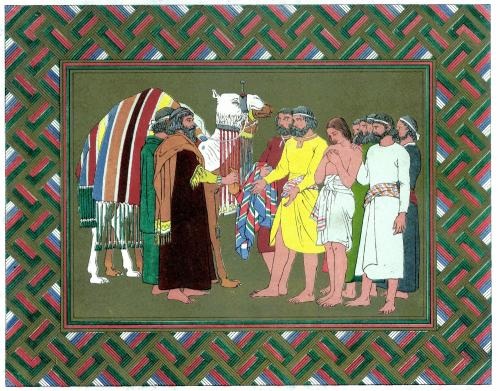Articles
- Impact of the Bible
- The cultural influence of the Bible and Christianity in England
- Bible in English culture, The
- English Bible Translations
- Influence of the Book of Common Prayer on the English language
- A history of the church in England
- Culture and sung Christian worship
- Famous stories from the Bible
- Literary titles from the Bible
- Common Sayings from the Bible
- Big ideas from the Bible
- Adoption
- Angels
- Anger
- Anointing
- Apocalypse, Revelation, the End Times, the Second Coming
- Armour
- Ascent and descent
- Atonement and sacrifice
- Babel, language and comprehension
- Baptism
- Betrayal
- Blood
- Bread
- Bride and marriage
- Cain and Abel
- Christians
- City and countryside
- Cleansing
- Clothing
- Community, church, the body of Christ
- Covenant
- Creation, creativity, image of God
- Cross, crucifixion
- Curtain/veil
- Darkness
- Death and resurrection
- Desert and wilderness
- Devils
- Donkey, ass
- Doubt and faith
- Dove
- Dreams, visions and prophecy
- Earth, clay, dust
- Exile
- Feasting and fasting
- Fire
- Forgiveness, mercy and grace
- Fruit, pruning
- Garden of Eden, Adam and Eve, 'Second Adam'
- Gateway, door
- Goats
- Grass and wild flowers
- Harvesting
- Heaven
- Hell
- Incarnation (nativity)
- Inheritance and heirs
- Jewels and precious metals
- Jews, Hebrews, Children of Israel, Israelites
- Journey of faith, Exodus, pilgrims and sojourners
- Judgement
- Justice
- Kingship
- Last Supper, communion, eucharist, mass
- Light
- Lion
- Lost, seeking, finding, rescue
- Messiah, Christ, Jesus
- Miracles
- Mission, evangelism, conversion
- Moses
- Music
- Names
- Noah and the flood
- Numbers in the Bible
- Parables
- Parents and children
- Passover
- Path, way
- Patriarchs
- Peace
- Penitence, repentance, penance
- Poverty and wealth
- Prayer
- Promised Land, Diaspora, Zionism
- Psalms
- Rabbi, Pharisee, teacher of the law
- Redemption, salvation
- Rest
- Rock and stone
- Salt
- Seed, sowing
- Serpent, Devil, Satan, Beast
- Servant-hood, obedience and authority
- Sheep, shepherd and lamb
- Sin
- Slavery
- Soul
- Temple, tabernacle
- Temptation
- Ten Commandments, The
- Trees
- Trinity, Holy Spirit
- Vine, vineyard
- Water
- Weeds, chaff, briar, thorn
- Wisdom and foolishness
- Women in the Bible
- Word of God
- Work and idleness
- Investigating the Bible
- Literary allusions to the Bible
- Pilgrimage in literature
- Biblical style in poetry
- Biblical imagery in metaphysical poetry
- Bible/Literature intertextuality
- The cultural influence of the Bible and Christianity in England
Betrayal
The word ‘betrayal’ has a range of subtly related meanings associated with violation of trust. It especially describes the act of delivering a supposed friend or ally to a common enemy. It can also imply:
- The unauthorised sharing of secret information
- The deliberate infliction of harm where favour was expected
- An action that contradicts a stated value or claimed intention.
Examples of betrayal in the Old Testament
The Old Testament has many well-known examples of betrayal, particularly by family of close associates.
Jacob and Esau
Jacob betrayed his twin brother Esau by conspiring with their mother to trick him out of his birthright (his preferential position in the family as the firstborn son). First he exploited Esau’s impulsive nature by serving him a meal in exchange for the inheritance (Genesis 25:29-34 - Esau must have been very hungry!) Later, he disguised himself as Esau in order to receive their father Isaac’s blessing Genesis 27:1-35.
 Joseph and his brothers
Joseph and his brothers
Joseph’s eleven brothers envied him for being Jacob’s favourite son. He exacerbated their ill-will by boasting about prophetic dreams of his own future greatness Genesis 37:3-11. They betrayed him, and their father, by selling Joseph to passing slave-traders and faking his death Genesis 37:18-34.
Samson and Delilah
Having been dedicated to God, Samson was endowed with supernatural strength and became a terror to the enemies of Israel Judges 15:14-17. But the Philistine chiefs convinced his lover, Delilah, to betray him for money Judges 16:4-6. Samson, ignoring the evidence of her disloyalty, eventually revealed that the secret of his strength was his hair, which, as part of his vow, had never been cut. The Philistines used this information to capture and imprison him Judges 16:17-21.
David and Uriah
By sleeping with Bathsheba, King David betrayed her husband, Uriah, as well as his own godly principles 2 Samuel 11:2-5. When Bathsheba became pregnant, he took his treachery to another level: to cover up his sin, he arranged for the loyal soldier to be killed in battle, abandoned by his comrades on the front line 2 Samuel 11:14-17. Later, David was betrayed by his own son, Absalom, who conspired to take the kingdom from him 2 Samuel 15:1-14.
Examples of betrayal in the New Testament
 Judas Iscariot
Judas Iscariot
The disciple Judas Iscariot betrayed Jesus to the Jewish authorities (see Matthew 26:14-16), an act that has made his name a byword for ‘traitor’. He was motivated partly by greed, infamously receiving ‘thirty pieces of silver’ for leading the officers to Jesus’ location in the Garden of Gethsemane. His duplicity was accentuated by his use of a kiss of friendship to identify the wanted man Matthew 26:47-50 (hence the expression ‘Judas kiss’).
Peter
Prior to being arrested, Jesus predicted during The Last Supper) that all his disciples would ‘fall away’ because of him, and that Peter in particular would deny him three times Matthew 26:31-35. Although his followers were adamant that they would stand by him even to death, most of them did abandon him after the scene in the garden Matthew 26:56. Peter followed the arrest squad to the courtyard of the high priest, but once there he did indeed deny his association with Jesus three times Matthew 26:69-75.
Peter was overcome with grief once he realised what he’d done, and was given the chance to claim his allegiance to Christ again following Jesus’ resurrection (see John 21:15-19.
Ananias and Sapphira
Ananias and Sapphira betrayed the community of the early church by conspiring to lie about the price of some land they sell. They were under no obligation to give the full proceeds, but they wished to be seen to have done so, to their greater cost Acts 5:1-10.
Examples of betrayal in literature
- Shakespeare’s c.1599 tragedy Julius Caesar is based on the true story of the assassination of the title character. The line ‘Et tu, Brute!’ (‘And you, Brutus!’; Act III, Scene I) has become synonymous with severe and unexpected betrayal from someone close
- King Lear (Shakespeare, c.1606) deals with a different type of betrayal: Lear’s two eldest daughters fawn over him in order to win his favour (and their inheritance) only to treat him with cruelty and indifference once he is in their power
- In Jane Austen’s Pride and Prejudice (1813) the Bennet family view Mr. Wickham as a trusted friend until he elopes with Lydia, the youngest daughter
- There are many examples of betrayal in Alexandre Dumas’ 1844 adventure novel The Count of Monte Cristo. Most pivotal to the plot is the jealousy-driven conspiracy of Danglars and Fernand against the innocent Edmund, which leads to his imprisonment
- Ernest Hemingway’s For Whom the Bell Tolls (1940) is about a Republican guerilla unit fighting in the Spanish Civil War. Their safety and the success of their mission is jeopardised by the traitorous impulses of their own leader, Pablo
- In Animal Farm, George Orwell’s 1945 political fable, Napoleon betrays the other animals and the farm’s ideology by exploiting his position of power for his own benefit
- In 1984, a 1949 dystopian speculative novel also by Orwell, the Thought Police coerce Winston into the ultimate betrayal of the woman he loves. Confronted with his worst fear (a cage of rats strapped to his face), he shouts ‘do it to Julia!’
- In C S Lewis’ The Lion, the Witch and the Wardrobe (1950), Edmund betrays his siblings and their Narnian friends by telling the White Witch of their location. This has been interpreted as an allegory of Judas’ betrayal of Christ.
Other cultural references
- In the 1999 film The Matrix, directed by the Wachowskis, Cypher, a crew member on the rebel ship Nebuchadnezzar in the ‘real’ world, betrays his comrades to their sentient machine enemies in return for a peaceful life back inside the Matrix.
Related topics
- Big ideas: Cain and Abel; Sin; Women in the Bible
- Famous stories from the Bible: David and Bathsheba; Jacob cheats Esau; Jesus and Peter; Joseph and his brothers - Part I; Peter denies he knows Jesus; Samson and Delilah;
- English Standard Version
- King James Version
- English Standard Version
- King James Version
- English Standard Version
- King James Version
- English Standard Version
- King James Version
- English Standard Version
- King James Version
- English Standard Version
- King James Version
- English Standard Version
- King James Version
- English Standard Version
- King James Version
- English Standard Version
- King James Version
- English Standard Version
- King James Version
- English Standard Version
- King James Version
- English Standard Version
- King James Version
- English Standard Version
- King James Version
- English Standard Version
- King James Version
- English Standard Version
- King James Version
- English Standard Version
- King James Version
- English Standard Version
- King James Version